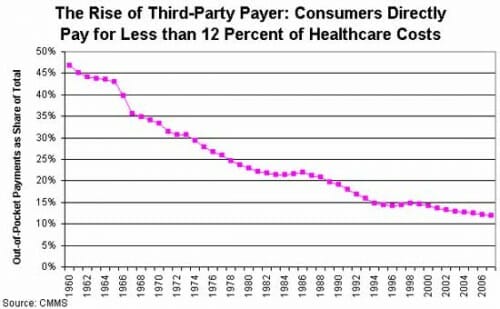What Happens to Poverty and Other State Economic Stats When One Finally Takes Into Account Different State Cost of Living Levels
This is really interesting, and I suppose not surprisingly, quite under-reported. It appears the blue state model is even worse than we thought for combating poverty. Not only does it suppress economic growth, but it also tends to raise prices of housing and other necesities
The familiar official [poverty] measure is more than 50 years old, and is showing its age. It has two huge shortcomings: it considers the cost of living to be the same in the 48 contiguous states (a patently ridiculous proposition when considering that the average rent in San Francisco in the first quarter of 2015 was $3,458 vs. $867 in Houston), and it doesn’t account for in-kind benefits, such as Section Eight housing subsidies and Electronic Benefit Transfer cards (food stamps).
Thus, the federal government’s main poverty gauge undercounts material poverty levels in high-cost states such as California, New York, and Hawaii, while over-counting true poverty in much of the low-cost Midwest and South.
Responding to concerns from Congress, advocates for the poor, and academics, some 20 years ago the U.S. Census Bureau began developing an alternative measure of poverty to address weaknesses in the official measure. The Census Bureau’s new, more comprehensive Supplemental Poverty Measure (SPM) is the result....
The authors use this data to compare Texas and California
Official Poverty Measure Rate, 2011-2013 Supplemental Poverty Measure (SPM) Rate, 2011-2013 California 16.0% 23.4% Texas 17.2% 15.9% National Average 14.9% 15.9% The share of minorities in California and Texas is about 50 percent higher than in the nation as a whole, triple that of Wisconsin or Minnesota, more than quadruple that of Iowa, and about six-and-a-half times that of New Hampshire. Thus, it is an illuminating measure the wellbeing of America’s four largest racial or ethnic groups in the two most-populous states that one-fifth of Americans call home. The table below shows the average SPM for four years, 2010 to 2013, for these four groups.
White, non-Hispanic SPM Rate, 2010-13 Black, non-Hispanic SPM Rate, 2010-13 Hispanic SPM Rate, 2010-13 Asian SPM Rate,2010-13 California 14.8% 30.1% 33.7% 17.9% Texas 9.7% 19.9% 22.7% 14.1% National Average 10.8% 24.7% 27.7% 17.1%
I guess its time for a disparate impact suit against California!
In a related bit of data, here is the real value of $100 in each state (higher is better) which is sort of the inverse of cost of living. States with higher costs of living will have lower numbers
Leading to this interesting outcome:


